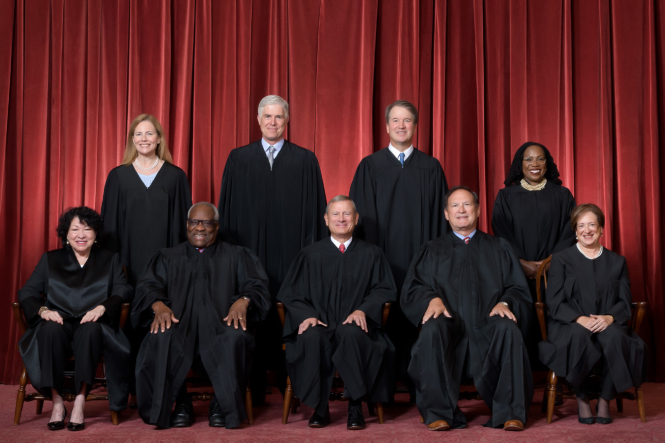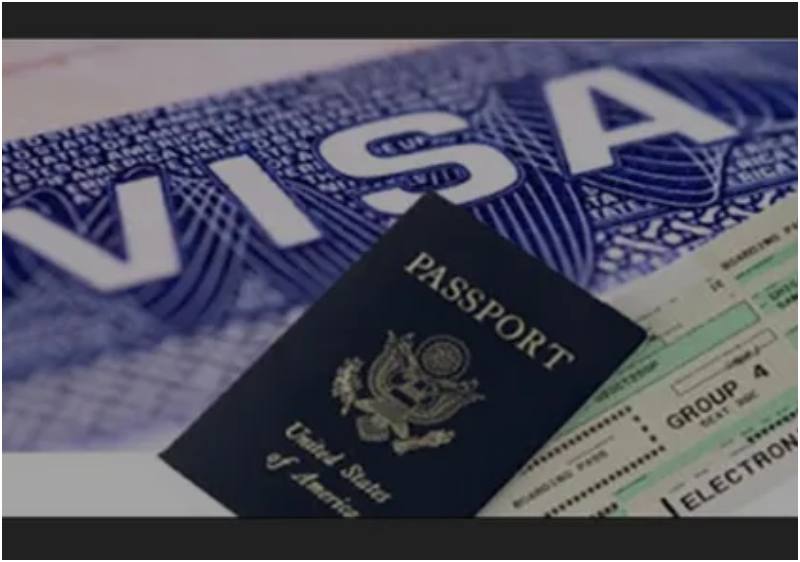In a victory for the Trump administration, the U.S. Supreme Court has temporarily halted a lower court’s order that would have required the State Department to issue passports reflecting a person’s gender identity.
The decision reinstates a policy mandating that federal passports display the holder’s sex as designated at birth.
The court’s brief, unsigned opinion on Thursday, November 6, 2025, sided with the government’s argument that the policy is a simple matter of recording a historical fact.
“Displaying passport holders’ sex at birth,” the majority stated, “no more offends equal protection principles than displaying their country of birth—in both cases, the Government is merely attesting to a historical fact without subjecting anyone to differential treatment.”

The ruling pauses an injunction issued by U.S. District Judge Julia Kobick, who had sided with a group of seven transgender and nonbinary plaintiffs. They argued that the Trump administration’s policy, established by an executive order on January 20th, violated their constitutional rights and posed a safety risk. The policy reversed a Biden-era rule that allowed passports to reflect gender identity without medical documentation and offered an “X” gender marker for nonbinary individuals.
A Sharp Dissent and a Clash of Harms
The decision was not unanimous, drawing a fiery dissent from Justice Ketanji Brown Jackson, who was joined by Justices Sonia Sotomayor and Elena Kagan. Jackson accused the majority of “pav[ing] the way for the immediate infliction of injury without adequate (or, really, any) justification.”
The core conflict, as laid out in the legal battle, revolves around competing definitions of “irreparable harm.” The Trump administration, represented by Solicitor General D. John Sauer, argued that being forced to issue passports contrary to the President’s foreign policy and “scientific reality” constituted an injury to the nation.
The plaintiffs, represented by lawyer Chase Strangio, countered that the real and immediate harm falls on transgender and nonbinary Americans. They argued that being forced to present a passport with an incorrect sex designation can lead to “potential danger,” harassment, and discrimination when traveling.
Commentary: A Battle Over Identity and Power
This interim ruling is more than a procedural step; it is a stark reflection of a deep cultural and legal schism. The court’s majority framed the issue as one of administrative fact-keeping, divorcing the passport designation from a person’s lived identity. In their view, a passport is a record of origin, not a reflection of current self.
Justice Jackson’s dissent cuts to the human heart of the matter. For her, the harm is not abstract or diplomatic; it is personal, psychological, and potentially physical. Her opinion underscores that for transgender and nonbinary individuals, a document that misgenders them is not a simple clerical error but a profound denial of their identity that can have real-world consequences.
The administration’s appeal to “foreign policy” interests, without concrete elaboration, rings hollow to critics who see the policy as a targeted effort to roll back LGBTQ+ rights under the guise of bureaucratic order. The case now returns to the lower courts for a full trial, but the Supreme Court’s signal is clear: it believes the government is likely to win this fight, setting the stage for a protracted legal war over how the nation officially recognizes the identity of its citizens.

